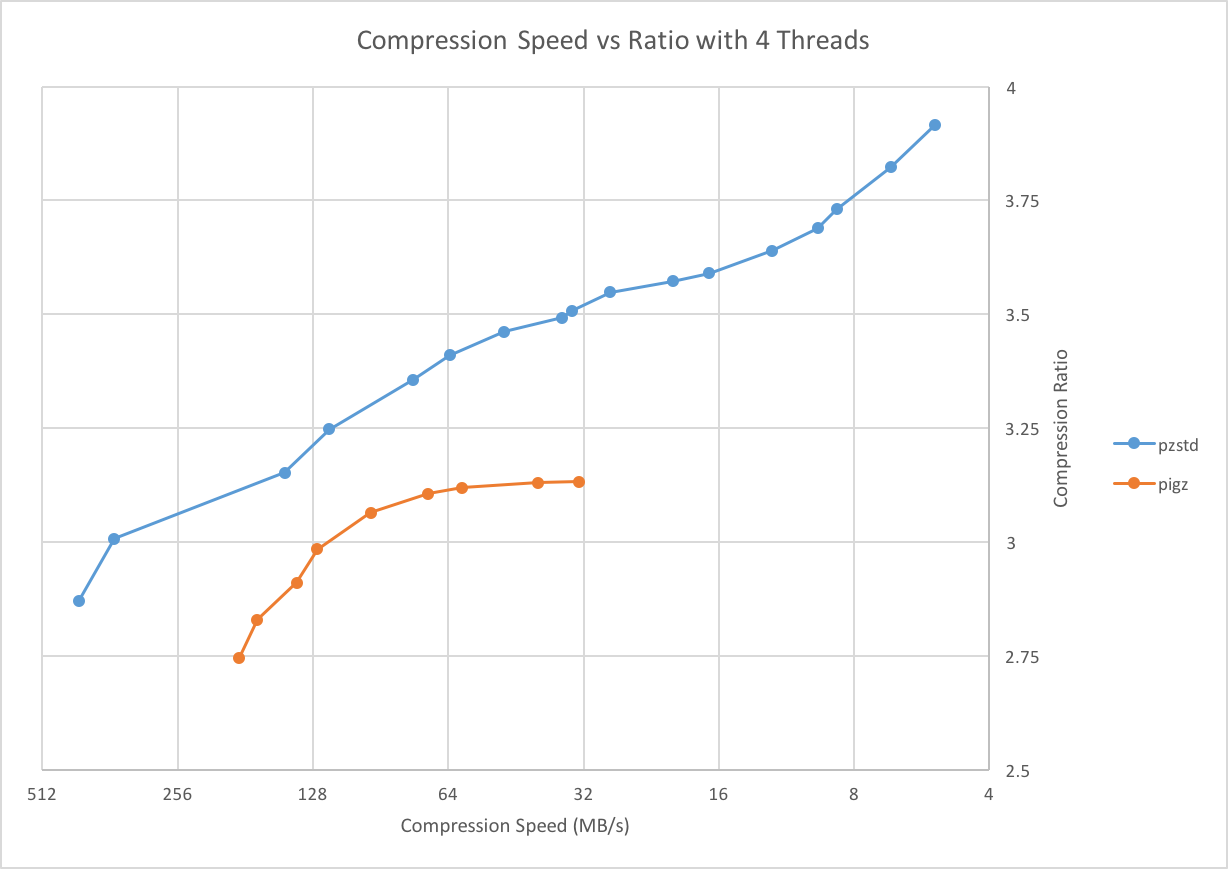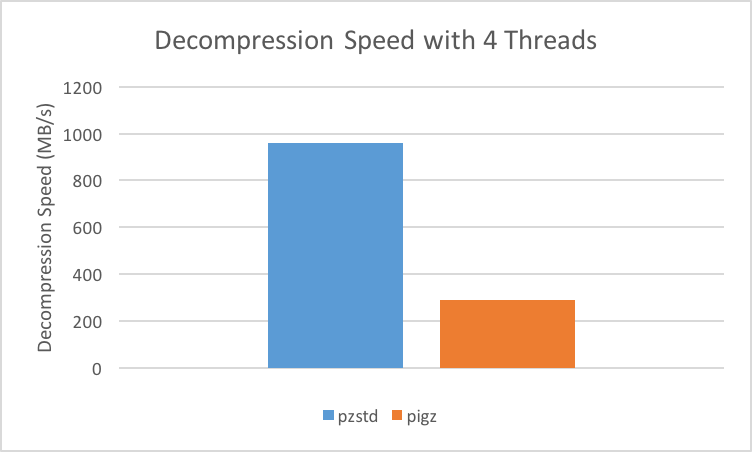| .. | ||
| images | ||
| test | ||
| utils | ||
| .gitignore | ||
| BUCK | ||
| ErrorHolder.h | ||
| Logging.h | ||
| main.cpp | ||
| Makefile | ||
| Options.cpp | ||
| Options.h | ||
| Pzstd.cpp | ||
| Pzstd.h | ||
| README.md | ||
| SkippableFrame.cpp | ||
| SkippableFrame.h | ||
Parallel Zstandard (PZstandard)
Parallel Zstandard is a Pigz-like tool for Zstandard. It provides Zstandard format compatible compression and decompression that is able to utilize multiple cores. It breaks the input up into equal sized chunks and compresses each chunk independently into a Zstandard frame. It then concatenates the frames together to produce the final compressed output. Pzstandard will write a 12 byte header for each frame that is a skippable frame in the Zstandard format, which tells PZstandard the size of the next compressed frame. PZstandard supports parallel decompression of files compressed with PZstandard. When decompressing files compressed with Zstandard, PZstandard does IO in one thread, and decompression in another.
Usage
PZstandard supports the same command line interface as Zstandard, but also provides the -p option to specify the number of threads.
Dictionary mode is not currently supported.
Basic usage
pzstd input-file -o output-file -p num-threads -# # Compression
pzstd -d input-file -o output-file -p num-threads # Decompression
PZstandard also supports piping and fifo pipes
cat input-file | pzstd -p num-threads -# -c > /dev/null
For more options
pzstd --help
PZstandard tries to pick a smart default number of threads if not specified (displayed in pzstd --help).
If this number is not suitable, during compilation you can define PZSTD_NUM_THREADS to the number of threads you prefer.
Benchmarks
As a reference, PZstandard and Pigz were compared on an Intel Core i7 @ 3.1 GHz, each using 4 threads, with the Silesia compression corpus.
| Compression Speed vs Ratio with 4 Threads | Decompression Speed with 4 Threads |
|---|---|
 |
 |
The test procedure was to run each of the following commands 2 times for each compression level, and take the minimum time.
time pzstd -# -p 4 -c silesia.tar > silesia.tar.zst
time pzstd -d -p 4 -c silesia.tar.zst > /dev/null
time pigz -# -p 4 -k -c silesia.tar > silesia.tar.gz
time pigz -d -p 4 -k -c silesia.tar.gz > /dev/null
PZstandard was tested using compression levels 1-19, and Pigz was tested using compression levels 1-9. Pigz cannot do parallel decompression, it simply does each of reading, decompression, and writing on separate threads.
Tests
Tests require that you have gtest installed.
Set GTEST_INC and GTEST_LIB in Makefile to specify the location of the gtest headers and libraries.
Alternatively, run make googletest, which will clone googletest and build it.
Run make tests && make check to run tests.